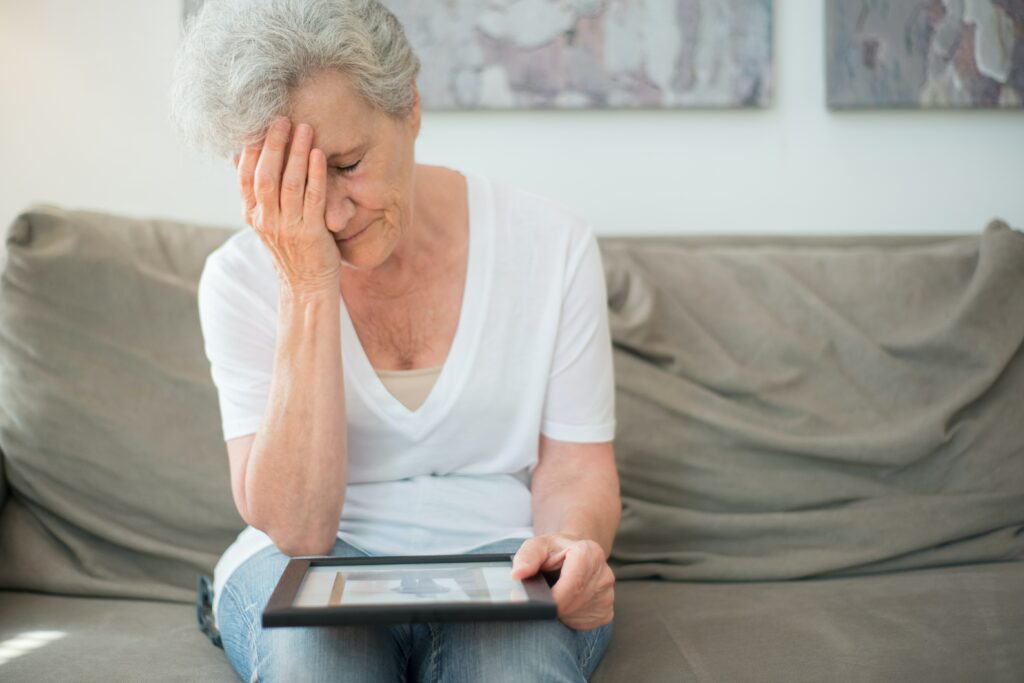As we age, our appearance also changes in some ways. One way is by hair loss. Hair loss, also called alopecia, can affect just your scalp, or your entire body. For the elderly, it is more predominant in men than women; however, women can be affected to hair loss as well. Sometimes hair loss is a hereditary issue, a medical condition, a hormonal change, or just a part of aging. Baldness is another issue closely related to hair loss. Most elderly people who are bald, chances are it is a hereditary problem. There are some elderly who choose to let their hair loss continue without treatment or hide it from friends and family. While other may try to cover it through the use of accessories, such as hats, scarves, make up, or hairstyles. If you do want to use treatments, try some non-invasive options first. And always talk to your doctor before starting one. Now let’s talk about the common symptoms of hair loss in the elderly.
Symptoms of Hair loss

There are several ways symptoms of hair loss can show up on the body and head. Below are listed the most common appearances of hair loss and how it is presented on the body for both men and women.
Gradual thinning on top of head: The most type of hair loss found in the elderly. It may start as a small receding hairline of the forehead, but then gradually turn to a much broader part of the head. Both men and women can have this type, and can be hereditary.
Sudden loosening of hair: This could come from either a physical or emotional shock of a recent event. In most cases, a significant amount of hair is falling out when the person combs or washes their hair. Most of the time this is a temporary issue.
Patches of scaling that spread over the scalp: This could be a sign of ringworm. Broken hair often happens. What can occur is redness and swelling, followed by oozing, at times.
Circular or patchy bald spots: Seniors often lose hair with a circular design on the scalp. It can also cause patches of bald spots on the head, around the eyebrows, or near facial hair, such as where a beard is.The area can become very itchy with increased pain before the hair finally falls out.
Full-body hair loss: One of the hardest type of hair loss is when it affects the whole body. This is often the result of certain medical conditions or treatments, such as chemotherapy. Many cancer treated patients will lose hair throughout there body, not just their head. However, most people who go into remission will have their hair grow back.
When it is time to see your doctor?
Seeing a doctor could help you to figure out the root cause of the hair loss, and find what are the best treatment for your specific problem. As we mentioned before, hair loss effects both men and women. For women, a receding hairline is called frontal fibrosing alopecia. Treatments are available; and if caught early, it can prevent permanent baldness. If you notice sudden or patchy hair loss, more often than normal, speak with your primary care physician immediately. Sometimes sudden hair loss is due to an underlying medical condition.
Hair Loss Causes

The average person loses between 50 to 100 hairs a day. Most of the time we don’t even notice this because it is not a significant change to our daily routine. Especially with new hairs growing back at the same time. However, people become aware of hair loss when the new hairs stops replacing the ones lost. If you have hair loss, there are a few factors to consider, and what could be causing the hair loss altogether.
Family history (heredity): Unfortunately, this is the most common cause of hair loss. It can be a result of either side of the family and happens often as the person ages. Baldness often results. Another name for baldness is called androgenic alopecia, which is a common male-pattern baldness and female-pattern baldness. Some men will get the receding hairline, while women may develop thinning hair around the crown of the scalp.
Medications and supplements: It is very common to find hair loss as a side affect to certain medications, or prescribed drugs. Some people that have been diagnosed with cancer, arthritis, or heart complications will have side affects to the type of meds their doctor has prescribed to them. Hair loss can also be a side affect to those dealing with depression, high blood pressure and gout.
Hormonal changes and medical conditions: There are several conditions that can be the culprit to hair loss. Some can cause just temporary loss, while other may be permanent. An example of temporary hair loss in women is hormonal changes found during menopause, childbirth or while pregnant. For those in menopause, the production of estrogen and progesterone are less prevalent in the body, which these hormones are known to help grow hair. Women may experience hormonal changes due to thyroid problems as well. Some women may also have medical conditions, which include alopecia areata (al-o-PEE-she-uh ar-e-A-tuh); an immune system issue that creates patchy hair loss and scalp infections. Another concern could be due to an imbalance of your hormones. This is often due to having too much or too little of a hormone, and Endocrine disorders may be present.
Radiation therapy to the head: The last cause of hair loss could be due to radiation. Although temporary at most, it could turn into a permanent problem. This type of hair loss cause can be very stressful to the person involved and may last for several months. Excessive styling and treatments can pull out your hair even more. This can include pigtails or cornrows, which may cause traction alopecia. If you use hot oil treatments on your hair, you can cause hair to easily fall out as well.
Common risk factors to Hair Loss
There are a variety of factors that can increase a senior’s risk of hair loss. Here are a few to consider:
- Age
- Significant weight loss
- Certain medical conditions, such as diabetes and lupus
- Stress
- Poor nutrition
Prevention options

There are several prevention options for both men and women who are dealing with hair loss. In fact, genetics is often the main culprit behind going bald. Unfortunately, this type of hair loss is not preventable. However, there are many tips seniors can do to avoid further hair loss.
- Gently brush your hair: It is best to use a detangler and try to avoid pulling hard on your hair. Don’t brush your hair when it is wet; you can lightly comb it though. Don’t us harsh treatments on your hair as well, especially hot rollers, curling irons, hot-oil treatments and permanents. Try to avoid rubber bands, barrettes, and braids that often.
- Stay in Contact with your Doctor: Talk with your doctor about any medications and supplements you are prescribed to take which may cause hair loss.
- Sunlight can be really hard on your hair, especially due to the ultraviolet rays from the Sun. Seniors should consider wearing coverings or hats to protect them.
- Stop smoking: There are several studies that show a connection between smoking and baldness in men.
- One last thing, for those who have been treated with chemotherapy, should ask their doctor about getting a cooling cap. It may help reduce the risk of losing hair during chemotherapy treatments.
How to Care for Your Hair as You Age
There are a few tips that may help when caring for your hair as you get older. Below are some basic ones to help seniors to manage and care for hair as they age.
Washing less frequently.
One of the first things to do is not washing your hair every day. If you wash your hair too often, it can become very brittle and dry. Seniors should also shampoo only every other day or at least twice a week; this can help keep your scalp clean.

Eat a protein-rich diet.
As we age, most seniors don’t eat as much or do not eat the right foods. This can cause a senior to become nutrient deficient. Making sure you are getting a diet rich in protein can help regrow hair and also make your hair stronger. Some nutritionists suggest eating plenty of red meat, spinach and green leafy vegetables can be good for your hair. Also, eggs, berries, and avocados are a good choice.
Check your medications.
One last thing, be transparent on what medication you take with your doctor. Especially that some meds may interfere with how your hair grows. Look at all the possible side affects that your medication can do to your body, including hair loss; since some may have negative reactions. As stated earlier, some prescribed meds can cause an underlying medical condition, such as alopecia areata. It is often brought on through severe stress and can attack your immune system.